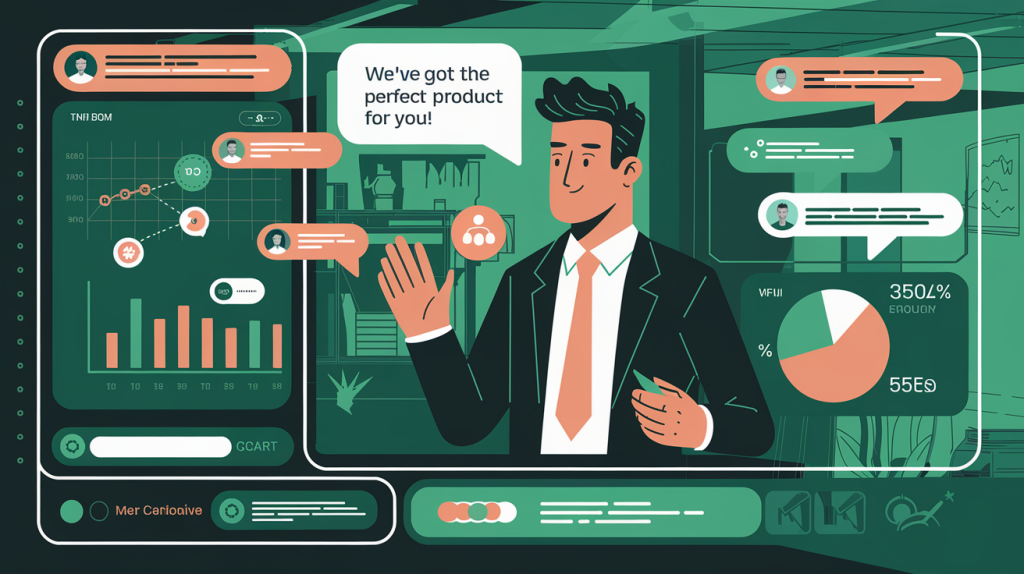How Personalized Conversations Are Revolutionizing Business

In today’s fast-paced, digital-first world, one-size-fits-all customer service is no longer enough. Customers expect personalized experiences that make them feel valued and understood. A recent study revealed that 80% of consumers are more likely to make a purchase from a brand that offers personalized experiences. But how exactly are personalized conversations revolutionizing business, and what does this mean for your company?
Let’s dive into the power of personalized conversations and how they’re transforming the way businesses interact with their customers.
1. Building Stronger Customer Relationships
Personalized conversations allow businesses to create deeper connections with their customers. By addressing customers by their names and remembering previous interactions, businesses can foster a sense of familiarity and trust. When a customer feels understood, they are more likely to return and engage with your brand.
- Tailored Communication: Whether it’s a personalized email or a chatbot conversation that remembers past issues, customization makes customers feel like a priority.
- Long-Term Loyalty: Personalization builds emotional connections that can lead to long-term loyalty and repeat business.
2. Improved Customer Satisfaction
Personalized conversations lead to more efficient and satisfying experiences. Instead of wading through generic responses or being forced to repeat their information, customers get the answers they need quickly and efficiently. This leads to higher customer satisfaction and, ultimately, higher conversion rates.
- Faster Problem Resolution: By offering tailored solutions to customer queries, businesses can resolve issues faster.
- Less Frustration: No more irrelevant recommendations or robotic responses—customers appreciate when businesses listen to their needs.
3. Increased Sales and Conversions
When conversations are personalized, customers feel like businesses truly understand their needs. This creates opportunities for upselling and cross-selling. By recommending products or services based on a customer’s preferences and past behavior, businesses can significantly increase their chances of making a sale.
- Personalized Recommendations: AI and data analytics allow businesses to offer personalized suggestions that align with a customer’s interests.
- Targeted Promotions: Sending tailored offers based on customer preferences or past purchases increases the likelihood of conversion.
4. Empowering Customer Service Teams
Personalized conversations don’t just benefit customers—they also help customer service teams. With access to a customer’s history and preferences, support agents can quickly understand and address issues, making their jobs more efficient and reducing handling times.
- Access to Customer Data: A unified customer profile helps agents provide more relevant solutions, reducing back-and-forth.
- Better Problem-Solving: Personalized data allows agents to handle issues more proactively, ensuring customers feel heard and valued.
5. Harnessing AI and Automation for Personalization
AI-driven tools, like chatbots, are playing a huge role in personalizing conversations. These systems learn from customer interactions and can offer tailored responses at scale, making it possible to provide personalized experiences even in high-volume settings.
- AI Chatbots: Chatbots that remember previous conversations and preferences can provide highly relevant and customized support.
- Predictive Analytics: By analyzing customer data, AI can predict what a customer needs, offering proactive support or product suggestions before the customer asks.
The Future of Business is Personalization
Personalized conversations are no longer a luxury—they’re a necessity for businesses that want to stand out in today’s competitive landscape. By leveraging data, AI, and customer insights, businesses can create meaningful, personalized interactions that drive customer satisfaction, loyalty, and sales.
If you’re not already focusing on personalization, it’s time to start. The future of customer engagement is all about making every conversation count.